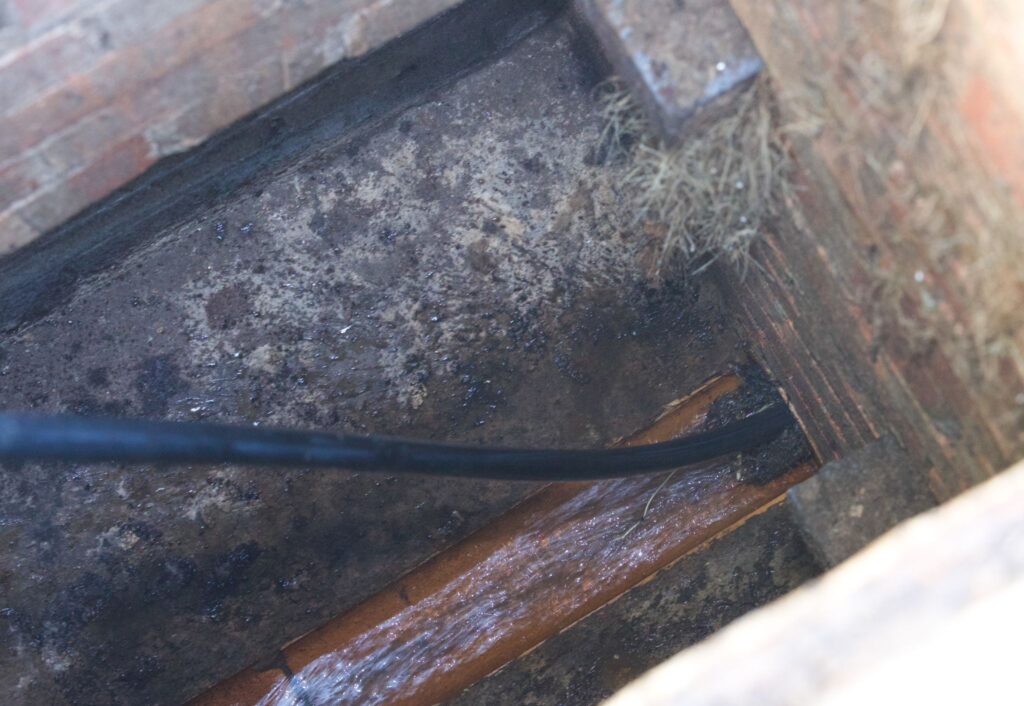Blocked drain are a common household nuisance that can lead to a myriad of problems if left unaddressed. From foul odors to potential property damage, understanding the causes, signs, and solutions for blocked drains is essential for maintaining a healthy and functional plumbing system. In this comprehensive guide, we will explore everything you need to know about managing and preventing blocked drains.
Here’s How Blocked Drains Tease Us
Common Causes and Solutions
Blocked drain can occur due to various factors, each contributing to the obstruction of water flow in pipes. Some common causes include:
Tree Roots Infiltration: Tree roots seeking moisture and nutrients can infiltrate underground pipes, causing blockages and structural damage. As roots grow, they can exert pressure on the pipes, leading to cracks and breakages.
Grease and Fat Buildup: Improper disposal of grease and fat down the kitchen sink can lead to the accumulation of sticky residues, restricting water flow. Over time, this buildup can form stubborn blockages, causing drainage issues.
Foreign Objects: Items such as sanitary products, wet wipes, and cotton buds flushed down the toilet can get lodged in pipes, causing blockages. These objects do not break down easily and can accumulate over time, leading to severe obstructions.
Soap Scum and Hair: In bathroom drains, soap scum buildup combined with hair can form stubborn clogs, impeding proper drainage. As hair accumulates in the pipes, it can trap other debris, exacerbating the blockage.
Signs of Blocked Drain
How Blocked Drains Tease Us? Recognizing the signs of blocked drain is crucial for timely intervention and preventing further damage. Some common signs include:
Slow Drainage: Water taking longer than usual to drain from sinks, showers, or tubs indicates a potential blockage in the pipes. This slow drainage may be gradual or sudden, depending on the severity of the obstruction.
Unpleasant Odors: Foul odors emanating from drains are often a sign of trapped debris or sewage buildup. These odors can be particularly strong in the kitchen or bathroom and may indicate a significant blockage that requires immediate attention.
Gurgling Sounds: Gurgling noises coming from drains when water is being flushed or drained could indicate air trapped in the pipes due to blockages. These sounds may occur intermittently and can be a sign of partial or complete obstruction.
Consequences of Ignoring Blocked Drains
Ignoring blocked drain can lead to severe consequences, impacting both your property and health. Some of the potential consequences include:
Property Damage: Blocked drain can cause water backups, leading to flooding and damage to flooring, walls, and possessions. This water damage can be costly to repair and may require extensive restoration work.
Health Hazards: Stagnant water in blocked drain can harbor bacteria and mold, posing health risks to occupants through contamination. Exposure to these contaminants can lead to respiratory issues, skin irritation, and other health concerns.
Expensive Repairs: Delaying drain maintenance can escalate minor blockages into major plumbing issues, resulting in costly repairs. In severe cases, extensive excavation may be required to access and repair damaged pipes, further adding to the expense.
Preventive Measures for Blocked Drains
How Blocked Drains Tease Us? Prevention is key to avoiding the inconvenience and expense of dealing with blocked drain. Here are some preventive measures you can take:
Regular Maintenance: Schedule routine inspections and cleaning of drains by professionals to remove buildup and prevent blockages. Regular maintenance can help identify and address issues before they escalate into major problems.
Proper Waste Disposal: Avoid flushing non-biodegradable items or pouring grease and oil down drains to prevent blockages. Dispose of solid waste properly in the trash and use sink strainers to catch food scraps.
Use of Drain Guards: Install drain guards or screens in sinks, showers, and tubs to trap debris and prevent them from entering pipes. These simple devices can help reduce the risk of blockages and extend the life of your plumbing system.
DIY Unblock Methods
If you encounter a minor blockage, you may be able to resolve it yourself using simple household items. Here are some DIY unblock methods to try:
Boiling Water: Pouring boiling water down drains can help dissolve grease and flush out minor blockages. This method is effective for softening grease and pushing it through the pipes.
Baking Soda and Vinegar: A mixture of baking soda and vinegar can create a natural cleaning solution that helps break down organic matter in drains. Pour the mixture down the drain, let it sit for a few hours, then flush with hot water.
Plunger: Using a plunger to create suction can dislodge minor clogs in sinks, toilets, and shower drains. Make sure to cover the drain opening completely and apply firm pressure to create a seal.
Professional Drain Cleaning Services
For more stubborn blockages or recurring issues, professional drain cleaning services may be necessary. Here are some common techniques used by professionals:
Hydro-jetting: High-pressure water jets are used to blast away stubborn blockages and clean pipes effectively. This method is particularly effective for removing grease, sludge, and mineral deposits.
Drain Snaking: A flexible auger or drain snake is inserted into pipes to break up and remove blockages, restoring proper drainage. Drain snaking is suitable for clearing obstructions caused by hair, food particles, and other solid materials.
CCTV Inspection: Advanced camera technology is utilized to inspect the interior of pipes, identifying blockages and assessing the condition of the plumbing system. CCTV inspection allows plumbers to pinpoint the exact location and cause of blockages, enabling targeted repairs.
Eco-Friendly Drain Cleaning Solutions
If you prefer environmentally friendly options, there are several eco-friendly drain cleaning solutions available:
Enzyme-Based Cleaners: Biological enzymes in these cleaners break down organic matter without harming the environment or pipes. Enzyme-based cleaners are effective for removing grease, food scraps, and other organic residues.
Biodegradable Drain Cleaners: Chemical-free formulas that use natural ingredients to dissolve blockages and maintain drain hygiene. Biodegradable drain cleaners are safe for use in septic systems and do not contain harsh chemicals that can damage pipes.
FAQs
How can I prevent tree roots from blocking my drains?
Regularly prune trees near drain lines and consider installing root barriers.
Are chemical drain cleaners safe to use?
While effective, chemical drain cleaners can damage pipes and harm the environment. Opt for eco-friendly alternatives whenever possible.
What should I do if DIY methods fail to unblock my drain?
Contact a professional plumber who can safely and effectively resolve the issue using specialized equipment.
Can be blocked drain affect my health?
Yes, stagnant water in blocked drain can harbor bacteria and mold,leading to respiratory issues and other health concerns.
How often should I schedule professional drain cleaning?
It’s recommended to have your drains professionally cleaned at least once a year to prevent blockages and maintain optimal drainage.
Conclusion!!
Blocked drains are a common household issue that can disrupt daily life and cause significant inconvenience. However, by understanding the common causes, recognizing the signs, and implementing preventive measures, you can effectively manage and resolve blocked drain, keeping your plumbing system in optimal condition. Whether you opt for DIY methods or professional assistance, timely intervention is key to preventing further damage and maintaining a healthy plumbing system.







